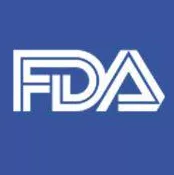CFSAN to Establish Cooperative Agreement to Further Progress on Shell Egg Safety
The Food and Drug Administration (FDA) is announcing its intent to establish a Cooperative Agreement with the North Carolina State University, Prestage Department of Poultry Science and the Piedmont Research Station Poultry Unit to conduct studies to further progress on the safety of shell eggs in the U.S. market.
In 2009, FDA issued the Egg Safety Rule, which was designed to prevent foodborne illnesses and deaths caused by consumption of eggs contaminated with Salmonella Enteritidis (SE). This regulation requires industry to implement measures to prevent eggs from becoming contaminated with SE during their production in poultry houses and requires subsequent refrigeration of the eggs during storage and transportation. The goal of the cooperative agreement is to research routes of transmission for Salmonella species, including but not limited to SE, found within the egg production industry and to investigate how alterations in physical feed characteristics and housing may influence the transmission of Salmonella. Of particular interest is determining whether other Salmonella serotypes, such as Salmonella Heidelberg (SH), behave similarly to SE, since outbreaks have been caused from consumption of eggs contaminated by SH. Findings from the studies will help FDA and members of the egg industry better understand routes of Salmonella transmission and the food safety controls necessary to prevent illnesses from consumption of shell eggs.
FDA pursued collaboration with the North Carolina State University, Prestage Department of Poultry Science and the Piedmont Research Station Poultry Unit because their research facility mimics the size and scale of commercial poultry operations.
The actual cooperative agreement will issue and go into effect in September 2013.
Additional information:
Federal Register Notice Announcement of Cooperative Agreement
Looking for quick answers on food safety topics?
Try Ask FSM, our new smart AI search tool.
Ask FSM →






.webp?t=1721343192)